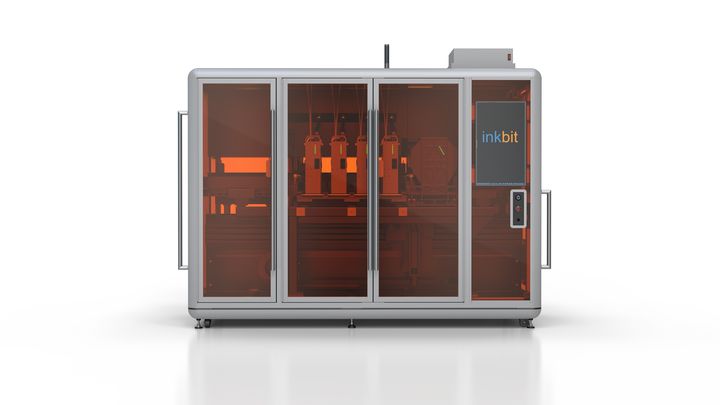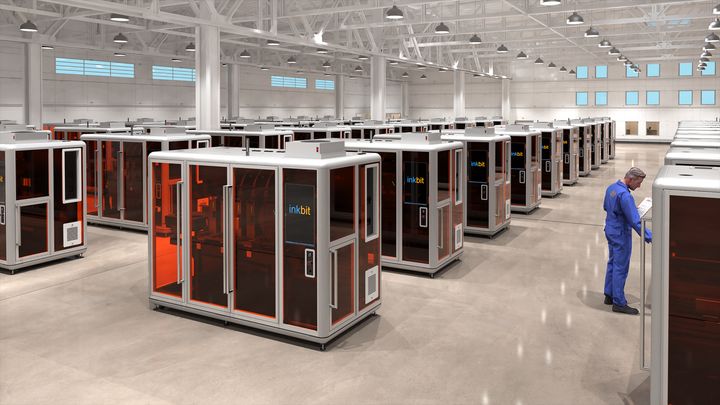
Inkbit announced a new additive manufacturing system, the Vista.
The Boston-based startup company is known for using AI to control the quality of 3D printing operations, and it relies heavily on vision systems.
In fact, their technology is called “VCJ”, or Vision-Controlled Jetting. While their system uses what at first might appear to use a typical material jetting process, it is in fact more advanced.
The AI vision system scans each layer before the next is deposited. The scan is matched against the expected geometry from the associated CAD file. If a discrepancy is observed, the system can immediately take action.
For example, a jetting nozzle might be clogged, or perhaps there is a shrinkage of the material. If these and other anomalies are detected, the closed loop system in the Vista can make appropriate counter-adjustments when depositing the next layer.
This is a very efficient process; some alternative systems use blades to scrape the previous layer flat to ensure a measure of quality. That approach wastes some amount of material, and surely does not approach the quality potential of the Vista’s VCJ system.
The Vista also includes multi-material capability. It can jet different materials during a single print job, making it possible to create a wider variety of useful parts. However, when you combine multi-material with the VCJ quality system you basically have a voxel-level control system.
Like other advanced 3D printing systems, the Vista combines the use of advanced materials. They explain:
“Until now, the most precise 3D printing technologies have all required the use of certain undesirable materials which make parts brittle and weak over time. Inkbit’s technology allows these materials, called acrylates and methacrylates, to be completely removed, opening up a new field of high quality and long-lasting parts.”
This is a very interesting development, as most resin-based 3D printers suffer from these issues. It seems that Inkbit’s chemists have developed some unusual resins that offer these properties. Inkbit’s website explains they have developed a number of unusual materials, include an elastomer capable of stretching up to 179% of original size, and rigid materials that hold strengths up to 170C.

They also say they can develop custom materials to meet client demands.
This could be a critical feature, as it seems the intention here is to use the Vista in production settings. Manufacturers inevitably require materials that are not typically available off the shelf, and that’s been one of the long-standing barriers to widespread use of 3D printing. Inkbit seems to be in a good position to overcome that obstacle with their materials capabilities.
Inkbit said the Vista is available for pre-order today.
Via Inkbit
